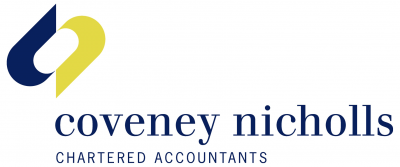Medical practice accounting can be complicated, especially when it comes to tax. As a healthcare provider, you need to balance caring for your patients with adhering to strict rules and regulations, whether that means complying with tax laws to meeting high health and safety standards.
In this blog, we aim to demystify the complexities of medical practice accounting and taxation to help you optimise your tax position and stay compliant.
Tax considerations in medical practice accounting
Tax and practice business structures
Medical practices are usually small to medium-sized businesses with NHS commissioners contracting their services. However, no two businesses are the same, and understanding the tax implications of these different structures is fundamental to managing your practice’s finances.
Most medical practices in the UK such as GPs and dentistry practices operate as partnerships. In this business structure, partners must manage their own income tax responsibilities as well as file a partnership return each year. It’s also vital to handle shared and individual finances with care.
This balancing act requires meticulous attention to detail, especially when it comes to making tax calculations and maintaining good bookkeeping practices.
Some healthcare professionals may decide to manage their practice as individuals. Similarly to partnerships, these providers must report their income via self-assessment returns each year.
Practitioners who run their medical practice as a limited company often face greater reporting obligations. As a company director, you’ll need to complete corporation tax returns and file annual accounts with Companies House each year.
Directors are also required to submit a self-assessment tax return to report their earnings.
VAT in medical practice accounting
While most healthcare services are exempt from VAT, some exceptions exist, making it crucial to accurately identify which products and services are liable for VAT and which are zero-rated.
Certain pharmaceutical goods, intermediary services, and other special NHS considerations can further complicate the VAT landscape for medical practices.
If your practice is VAT-registered, understanding VAT rules, thresholds and other compliance requirements is essential. As VAT specialists for doctors, we can provide you with up-to-date advice and returns services to help you meet your VAT obligations.
Minimising your practice’s tax burden
Understanding tax rules is just one piece of the medical practice accounting jigsaw. With funding from multiple income streams to juggle and high operating costs, managing cashflow can be challenging for healthcare professionals. As a result, it’s vital to minimise your tax bill by making use of the wide range of available tax reliefs and allowances.
Whether you’re a doctor, a dentist or run a community pharmacy, maximising your expense claims should be at the heart of your tax strategy.
Keeping good business records of all your income and expenditures can make it much easier to make your claim and reduce your tax burden. It’s also worth doing research into which purchases count as qualifying business expenditure.
An expert tax adviser can also help you boost savings by offering advice on claiming other reliefs and allowances available to healthcare providers. Accounting for medical practices can be complicated, but you don’t need to manage it by yourself.
Why choose professional accountants?
Working with professional accountants is instrumental for both meeting compliance requirements and building a solid financial strategy. As well as helping you minimise your tax burden, medical practice accounting experts at Coveney Nicholls can keep you updated and in line with the latest tax legislation.
Furthermore, our outsourced accounting solutions for healthcare providers include financial management services that boost operational efficiency and cost-effectiveness within your practice. This allows medical professionals to focus on their other duties.
Get in touch
In conclusion, staying informed about medical practice accounting requirements, and being aware of your tax obligations are all crucial for your financial well-being.
Getting the right professional assistance is key to building robust accounting systems that help you meet your tax obligations, minimise your tax burden and provide strategic financial insights for your practice.
Coveney Nicholls is ready to assist you with all your medical practice accounting needs – contact us for more information.

